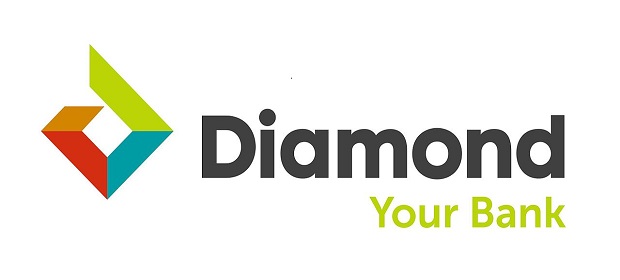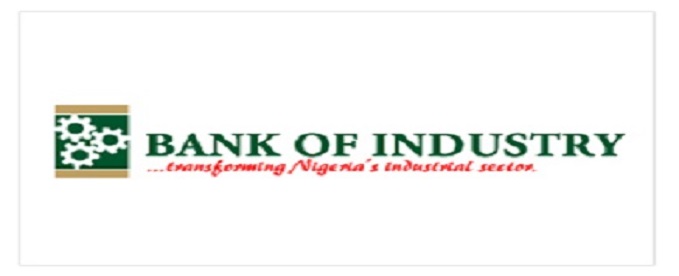E-Financial
Access Bank Dangles Juicy Offers on Diamond Bank Shareholders

The board of Diamond Bank Plc has confirmed reports in the media relating to the acquisition of the company by another financial institution, Access Bank Plc.
In a statement issued on Monday to the Nigerian Stock Exchange (NSE), Diamond Bank said its merger with the tier-1 bank will result into a more formidable entity in Africa.
It stated that the move was in the “best interest of all stakeholders including, employees, customers, depositors and shareholders,” noting that both parties have agreed to recommend the offer to Diamond Bank’s shareholders.
It said, “The proposed merger would involve Access Bank acquiring the entire issued share capital of Diamond Bank in exchange for a combination of cash and shares in Access Bank via a Scheme of Merger.
“Based on the agreement reached by the boards of the two financial institutions, Diamond Bank shareholders will receive a consideration of N3.13 per share, comprising of N1.00 per share in cash and the allotment of 2 new Access Bank ordinary shares for every 7 Diamond Bank ordinary shares held as at the Implementation Date.
“The offer represents a premium of 260 percent to the closing market price of N0.87 per share of Diamond Bank on the Nigerian Stock Exchange as of December 13, 2018, the date of the final binding offer.”
Immediately the merger is finalised in the first half of 2019, Diamond Bank would be absorbed into Access Bank and it will cease to exist under Nigerian law.
Also, the current listing of Diamond Bank’s shares on the NSE and the listing of Diamond Bank’s global depositary receipts on the London Stock Exchange will be cancelled, upon the merger becoming effective.
Mr Uzoma Dozie, chief executive officer of Diamond Bank, who commented on the development, said, “The proposed combination with Access Bank will create one of Africa’s leading financial institutions.
“There is clear strategic rationale for the proposed merger and strong complementarities between the two institutions.
“While Diamond Bank has pioneered Nigeria’s largest technology-led retail banking platform, Access Bank is one of Nigeria’s leading full-service commercial banks.
“Consolidation in the Nigerian banking industry is an inevitable, natural progression in a sector where the gap between Tier 1 and Tier 2 banks has been widening and scale has become critical; where technology will disrupt the traditional business model while enabling broader financial inclusion.
“The board of Diamond Bank believes that the proposed combination of the two operations provides an exciting prospect for all stakeholders in both businesses and will create a financial institution with the scale, strength and expertise to capitalise on the significant opportunities in Nigeria and sub-Saharan Africa more broadly.”

On his part, Mr Herbert Wigwe, CEO of Access Bank, stated that, “Access Bank has a strong track record of acquisition and integration and has a clear growth strategy.
“Access Bank and Diamond Bank have complementary operations and similar values, and a merger with Diamond Bank, with its leadership in digital and mobile-led retail banking, could accelerate our strategy as a significant corporate and retail bank in Nigeria and a Pan-African financial services champion.
“Access Bank has a strong financial profile with attractive returns and a robust capital position with 20.1 percent CAR as at September 30, 2018. “We believe that this platform, together with the two banks’ shared focus on innovation, financial inclusion and sustainability, can bring benefits to Access Bank and Diamond Bank customers, staff and shareholders.”
E-Financial
Ecobank Nigeria Fully Repays $300m Eurobond Notes

Ecobank Nigeria has announced the successful repayment of the outstanding principal and accrued interest on its original $300 million Eurobond due February 16, 2026, marking a significant milestone in its liability management strategy and overall balance sheet strengthening efforts.

Following the full repayment of the Eurobond obligations, the Bank stated that it will now focus its funding initiatives primarily on the domestic capital markets. T
his strategic shift reflects growing confidence in Nigeria’s local debt market and aligns with Ecobank Nigeria’s long-term objective of optimising funding costs while deepening its participation in the domestic financial ecosystem.
“Going forward, Ecobank Nigeria will prioritise domestic credit ratings and local debt issuance to achieve its funding objectives,” stated Ogorchukwu Okwechime, Financial Controller, Ecobank Nigeria, in Lagos.
He added that the successful repayment reinforces the Bank’s commitment to maintaining a resilient balance sheet and sustaining investor confidence.
The tender offer was conducted with Renaissance Capital Africa (Renaissance Securities Nigeria Limited) acting as financial adviser and dealer manager, while Sodali & Co Limited served as tender agent.
The notes were originally issued by EBN Finance Company B.V., with limited recourse to the issuer, for the sole purpose of financing the purchase of the US$300 million 7.125 per cent Senior Note due 2026 issued by Ecobank Nigeria.
The transaction underscores Ecobank Nigeria’s proactive approach to liability management, prudent capital planning, and strategic alignment with evolving market conditions.
It further positions the Bank to leverage domestic funding opportunities while maintaining financial flexibility and operational stability.
E-Financial
BoI Secures CBN’s Approval for Non-interest Banking Operation

Bank of Industry (BOI) has received approval from the Central Bank of Nigeria (CBN) to operate a Non-Interest Banking (NIB) Window.

Theodora Amechi, bank’s divisional head, Public Relations, said the regulatory nod allows BOI to launch non-interest banking operations, targeting underserved business segments with tailored financial solutions to support Nigeria’s industrial development.
BOI stated that NIB operations will promote inclusive growth, attract ethical funding, bolster the real economy, and finance customer assets and raw materials using approved non-interest products.
“This approval authorises BOI to commence Non-Interest Banking operations, positioning the bank to further advance Nigeria’s sustainable and inclusive industrial development through tailored financial solutions for underserved and high-impact business segments.
“The Non-interest Banking operations will enable BOI to drive inclusive growth, mobilise new ethical funding, expand support for the real economy, and align its financing activities with social and developmental objectives.
According to the bank, under this framework, BOI will be able to finance customers’ assets and raw materials using approved Non-Interest Banking products.
Announcing this milestone, Dr Olasupo Olusi, MD/CEO, Bank of Industry, said, “This licence marks a pivotal moment in the Bank’s journey of transforming Nigeria’s industrial sector. With this licence, we can reach a new category of borrowers who, before now, could not be served.”
He said the approval underscores the CBN’s confidence in the Bank’s commitment to responsible financing, adding that it will allow the bank to scale its operations, introduce innovative financing solutions, and deepen support for Micro, Small and Medium Enterprises (MSMEs), as well as other underserved segments critical to Nigeria’s sustainable economic growth.
“BOI’s decision to commence Non-Interest Banking operations is aimed at expanding access to ethical funding for businesses—particularly those that have traditionally avoided conventional interest-based financing.
This initiative opens new opportunities for ethically motivated and faith-sensitive enterprises, as well as segments of the economy that face challenges accessing traditional credit.
It enables such businesses to access much-needed financing and participate confidently in the formal financial system in a manner consistent with their values and business realities.
Bank of Industry (BOI) is Nigeria’s foremost Development Finance Institution, committed to driving industrial growth and inclusive economic development,” Olusi said.
Established in 1959 as the Investment Company of Nigeria (ICON) and reconstituted as Nigerian Industrial Development Bank (NIDB) under World Bank guidance in 1964.
The Bank assumed its current form in 2001 following the merger of the Nigerian Bank for Commerce and Industry (NBCI) and the National Economic Reconstruction Fund (NERFUND).
The Bank’s primary mandate is to provide financial assistance for the establishment and expansion of large, medium, small-scale, and micro projects.
E-Financial
Zenith Bank Warns Public Over Fake Jim Ovia Investment Videos

Zenith Bank Plc has cautioned the public against fraudulent videos circulating online falsely claiming that Group Chairman Dr. Jim Ovia endorses an investment scheme called “Wealth Bridge.”

Jim Ovia
In a disclaimer issued Tuesday by its management, the bank described the videos—circulated via the “Greece Island” Facebook handle—as entirely fake, doctored content bearing no connection to Dr. Ovia, the bank, or its affiliates.
The materials falsely promise up to N2 million in weekly returns for a N380,000 investment, while baselessly alleging Central Bank of Nigeria (CBN) endorsement and redirecting viewers to a sham “Arise News” webpage with a signup portal.
“Our attention has been drawn to a doctored video and still pictures currently circulating on social media, purporting to depict the Group Chairman of Zenith Bank Plc (‘the Bank’) as endorsing an investment scheme called ‘Wealth Bridge’ on the ‘Greece Island’ Facebook handle and soliciting members of the public to engage in a business relationship with the so-called entity,” the statement read.
“This claim is entirely false and has no connection whatsoever to the Group Chairman, the Bank or any of its affiliate companies.”
Zenith Bank stressed that Dr. Ovia and the institution have no knowledge of or partnership with “Wealth Bridge,” “delicious sitee,” “AfriQuantumX,” “Stock market analyst 1,” or related entities. The public was warned that dealing with these schemes carries full personal risk.
Ravenewsonline urges vigilance against rising impersonation scams targeting financial institutions.

 News2 days ago
News2 days agoAfrican Leaders Highlight Africa’s AI Ambitions

 General News3 days ago
General News3 days agoUBA Unveils Diaspora Platform to Connect Global Africans with Investment, Wealth Opportunities

 General News2 days ago
General News2 days agoNDPC Orders Probe into Temu over Alleged Data Privacy Breaches

 Telecom2 days ago
Telecom2 days agoMTN, BUA, Dangote & Other Industry Giants Triumph at NGX Made of Africa Awards

 Telecom2 days ago
Telecom2 days agoX Suffers Global Outage, Millions Barred from Access

 News2 days ago
News2 days agoLG Nigeria Begins Nationwide Search for Oldest Working TV, Rewards Loyalty with AI QNED Upgrade

 Telecom2 days ago
Telecom2 days agoMTN CIO Urges Africa to Lead Fourth Digital Revolution

 General News3 days ago
General News3 days agoLeo Stan Ekeh Foundation, Zinox Group To Invest 10B on 1000 University Tech Scholarships for Indigent Nigeria Wiz-kids





















